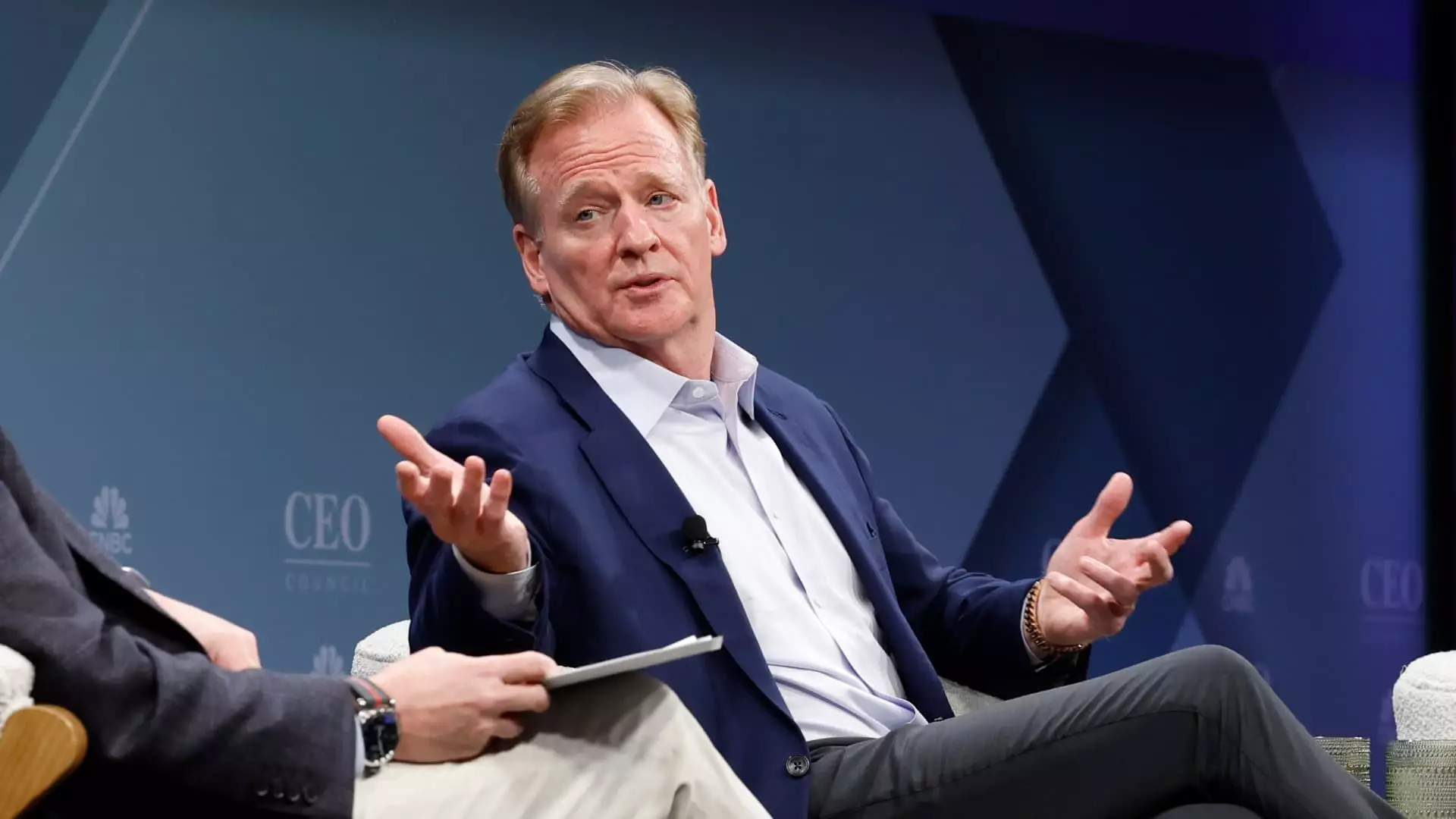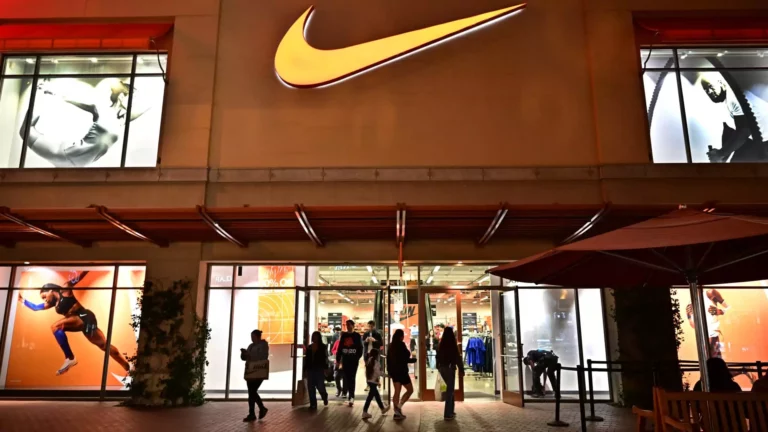16 Bold Moves: Why the NFL’s Global Ambitions Will Revolutionize Sports

In a bold declaration, NFL Commissioner Roger Goodell has announced radical plans to stretch the league’s presence beyond U.S. borders, with the potential to host up to 16 games worldwide annually within five years. This isn’t merely an initiative to capitalize on the popularity of American football but a calculated strategy aimed at tapping into a market that could redefine the sport’s economics. The NFL, which boasts a staggering 200 million domestic fans, is keenly aware of the international fanbase’s untapped potential. Goodell’s vision transcends sporting events; it envisions the NFL as a global cultural phenomenon, much like the FIFA World Cup or the UEFA Champions League.
At the recent CNBC CEO Council Summit, Goodell remarked, “International is an open market for us,” showcasing not only optimism but also an evident urgency to escalate the NFL’s global footprint. Historically, the league has flirted with international games, but such ambitious plans signal an unprecedented commitment. Nations like Brazil, England, Germany, Ireland, and Spain will not just serve as hosts; they are part of an intricate strategy to integrate American football into the global sports landscape.
Big Business: The Economics of Sports Travel
Goodell’s strategy is bolstered by insights from Marriott’s CEO Anthony Capuano, who highlighted the lucrative intersection of sports and travel—a market exceeding $50 billion annually. Sports tourism is not merely an ancillary stream but a primary artery for economic growth, especially for an institution like the NFL, which not only seeks to grow in viewership but also to cultivate a robust ecosystem of sports-related enterprises. By aligning with major travel partners, the NFL is embracing a model that recognizes the intrinsic link between fan engagement and economic vitality.
This model does not just benefit the league; it catalyzes local economies in the cities that host international games. Hotels, restaurants, and local businesses stand to gain significantly, further embedding the league into the socio-economic fabric of each international location. Goodell’s push to schedule more international games aligns perfectly with the trend of sports merging more deeply with travel, meaning the NFL could soon become not just an American institution but a cornerstone of global sports culture.
Private Equity: A New Gamechanger
The introduction of private equity into the NFL is another area that reflects Goodell’s willingness to embrace change, yet it raises questions about the ownership dynamics of the league. The NFL’s decision to allow private equity firms to buy stakes in teams has opened the floodgates to an influx of capital, a move that comes with its own risks. Team valuations are soaring—now averaging $6.49 billion—signifying investor confidence, yet this trend necessitates a careful balancing act between maintaining the integrity of the league and welcoming financial opportunities.
The involvement of firms like Ares Management and Blackstone, with their deep pockets and expansive reach, could lead to a transformation in how franchises operate. While connecting with private equity is essential for enhancing liquidity and investment in player development, there’s a lingering concern about the commodification of franchises, potentially alienating die-hard fans who view their teams as part of their community rather than mere profit centers.
The Market’s Resilience: A Mission Amidst Uncertainty
Against a backdrop of economic uncertainty marked by stubborn inflation and declining consumer sentiment, Goodell remains unshakeable. His belief that “there’s still great demand for our content” reflects an unwavering confidence not merely in the NFL but in sports as a resilient pillar of entertainment. Even in tumultuous times, people flock to their screens for connection, tension, and the sheer thrill of competition—a sentiment that bodes well for the league’s ambitious expansion goals.
Goodell’s perspective is commendable, and it’s a sentiment that should resonate throughout the business landscape: there’s an unmatched thrill and community fostered through sports. As the league leans into international expansion, it will be fascinating to watch how this intertwining of sport and community evolves, potentially redefining how we experience professional athletics on a global scale. The NFL’s bold ambitions are more than just an effort to attract fans—they are an invitation for the world to embrace a culture that celebrates competition, teamwork, and shared experiences.





